Stewards of Our Own Future – One Community Weekly Progress Update #406
We are stewards of our own future. We have a choice whether we want to recognize this and help or not. One Community is dedicated to helping and we’re doing it through open source sustainability solutions covering food, energy, housing, education, for-profit and non-profit economic design, social architecture, fulfilled living, global stewardship practices, and more.
- Here’s our project overview
- Here’s our world-change methodology
- Here’s how this becomes self-replicating
- Here’s how we are open source and free-sharing all the do-it-yourself designs
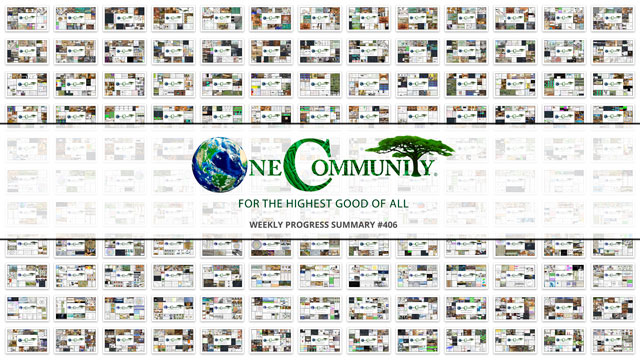
OUR MAIN OPEN SOURCE HUBS
Click on each icon to be taken to the corresponding Highest Good hub page.
One Community’s physical location will forward this movement of being stewards of our own future as the first of many self-replicating teacher/demonstration communities, villages, and cities to be built around the world. This is the January 3rd, 2021 edition (#406) of our weekly progress update detailing our team’s development and accomplishments towards becoming stewards of our own future:
Stewards of Our Own Future
One Community Progress Update #406
DONATE | COLLABORATE | HELP WITH LARGE-SCALE FUNDING
CLICK HERE IF YOU’D LIKE TO RECEIVE AN EMAIL EACH WEEK WHEN WE RELEASE A NEW UPDATE
YOU CAN ALSO JOIN US THROUGH SOCIAL MEDIA
ONE COMMUNITY WEEKLY UPDATE DETAILS
HIGHEST GOOD HOUSING PROGRESS
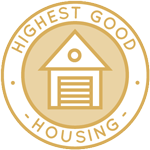 One Community is functioning as stewards of our own future through Highest Good housing that is artistic and beautiful, more affordable, more space efficient, lasts longer, DIY buildable, and constructed with healthy and sustainable materials:
One Community is functioning as stewards of our own future through Highest Good housing that is artistic and beautiful, more affordable, more space efficient, lasts longer, DIY buildable, and constructed with healthy and sustainable materials:
-
-
- Learn about: Our Upcoming Crowdfunding Campaign
- Learn about the different village models: 7 Sustainable Village Models
- Visit the open source portals for the first two: Earthbag Village OS Hub | Straw Bale Village OS Hub
-
This week the core team continued working on the Most Sustainable Flooring Materials staging page to promote the idea of functioning as stewards of our own future. We finished integrating the tables and the infogram image we’ve been working on, migrated the remaining Google Doc research into the webpage editor, and started the final website addition checklist. Pictures below show some of what the new page looks like as it develops behind-the-scenes reflecting efforts towards the mission of functioning as stewards of our own future.
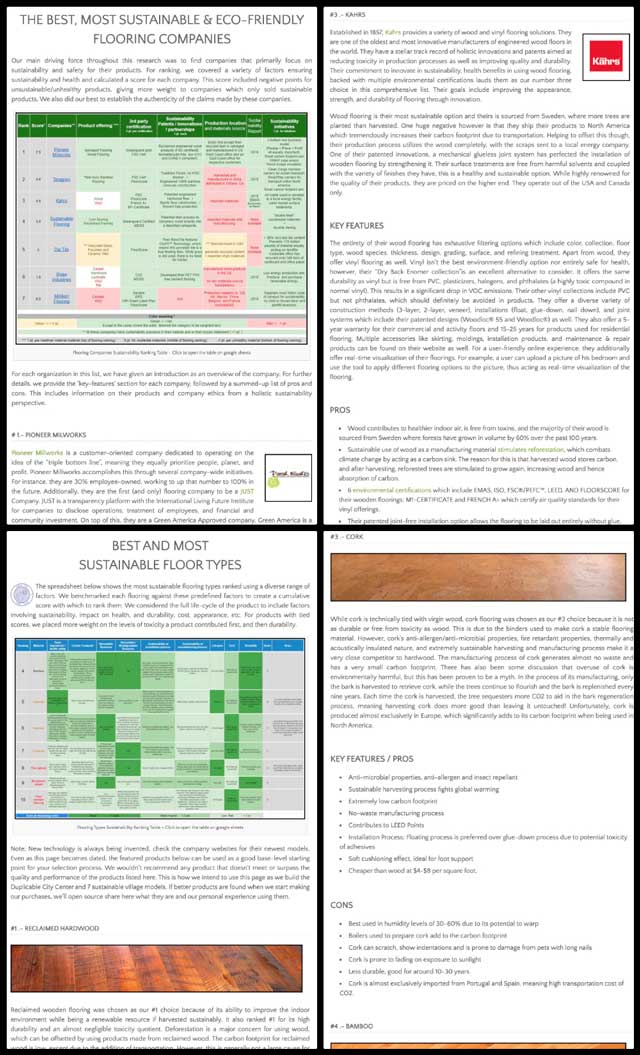
Continued Working on the Most Sustainable Flooring Materials Staging Page – Click for Main Flooring Page
The core team also began working on the Earthbag Village loft framing in SketchUp according to the latest loft design changes. This week we created all the necessary components for the loft. These included the joists, spacers, joist anchor pieces, loft entrance framing and loft floor sheeting. Through this process we identified some discrepancies in the measurements that we’ve passed along to Hannah to be fixed. Images below show some of this work reflecting efforts towards the mission of functioning as stewards of our own future.
Dean Scholz (Architectural Designer) continued helping with the Earthbag Village (Pod 1) 4-dome cluster designs. This week was week #208 of Dean’s work and the focus was beginning work on the internal furniture and lighting. He created new lights and the initial beanbags shown in the pictures below reflecting efforts towards the mission of functioning as stewards of our own future.
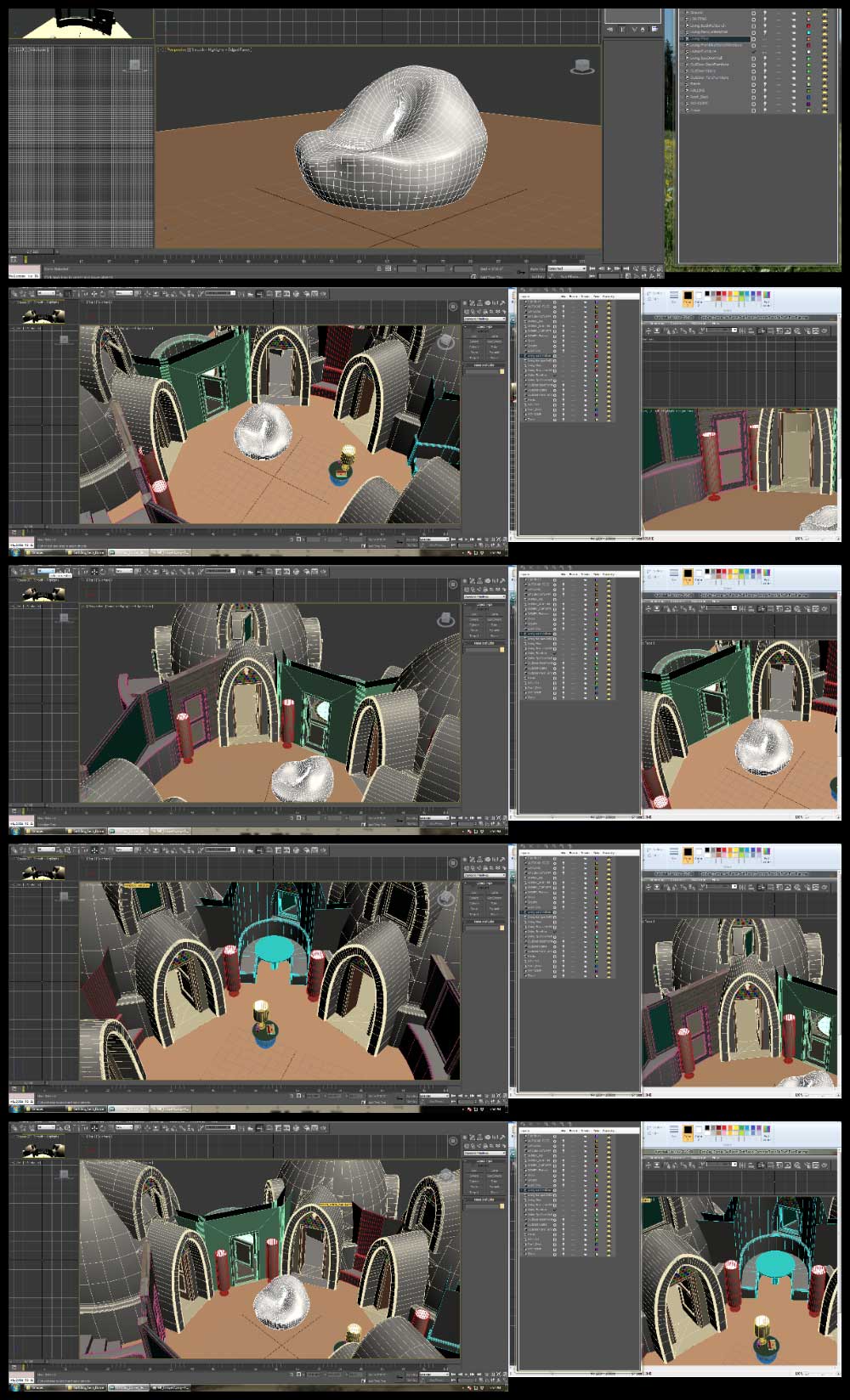
Created New Lights and the Initial Beanbags for the Earthbag Village 4-dome Cluster – Click for Page
This week Jose Luis Flores (Mechanical Engineer) completed his 24th week helping finish the Net-zero Bathroom component of the Earthbag Village. This week he began adding details regarding water sealing to the interior roof installation section of the Net-Zero Bathroom instructional draft. The details involved adding a diagram illustrating where caulk could be added to prevent leaking. Jose Luis began working on an additional section explaining how to seal the roof access with metal flash. While analyzing the model he determined that the prior sections involving the installation and construction of the interior roof had to be modified to accommodate the roof flash.
To understand and possibly uncover further details required the research and drafting of roof flash installation on the roof access, he began creating a section involving the installation of the roof flash. Jose Luis used traditional methods found online using step flash and a roof saddle to divert water around the roof access. The roof access is especially important in colder climates where freezing is common in the winters. The pictures below show some of this work reflecting efforts towards the mission of functioning as stewards of our own future.
Stacey Maillet (Graphic Designer) completed her 21st week working on the final edits and revisions to the Murphy bed instructions. This week Stacey continued her focus on the cutting pages and the brackets and latches for securing the bed. Pictures below show some of this work-in-progress reflecting efforts towards the mission of functioning as stewards of our own future.
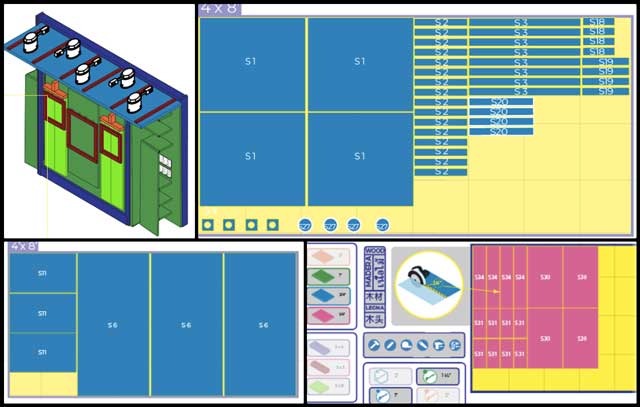
Continued Working on the Final Edits and Revisions to the Murphy Bed Instructions – Click for Earthbag Village Furniture Page
Hannah Copeman (Structural Engineer) completed her 19th week helping complete all the Earthbag Village tutorials. This week Hannah continued the development of the Earthbag Village dome construction by creating a step-by-step process guide for the structural design of the dome loft and by continuing work on the Footer, Foundation, and Flooring documentation. She picked up on the floor design of the dome by updating the floor envelope in the relevant CAD, and began researching the necessity of horizontal wing insulation around the exterior of the dome. You can see some screenshots of this work below reflecting efforts towards the mission of functioning as stewards of our own future.
Alvin Anggito (BS Civil Engineering) completed his 6th and final week working on the Communal Eco-shower structure. This week Alvin further developed the section views shown below and made the initial plumbing plans, showing the clean water and black water pipes for the shower. The pictures below show examples of some of this work reflecting efforts towards the mission of functioning as stewards of our own future.
DUPLICABLE CITY CENTER PROGRESS
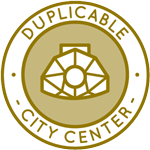 One Community is functioning as stewards of our own future through a Duplicable and Sustainable City Center that is LEED Platinum certified/Sustainable, can feed 200 people at a time, provide laundry for over 300 people, is beautiful, spacious, and saves resources, money, and space:
One Community is functioning as stewards of our own future through a Duplicable and Sustainable City Center that is LEED Platinum certified/Sustainable, can feed 200 people at a time, provide laundry for over 300 people, is beautiful, spacious, and saves resources, money, and space:
-
-
- Learn about this building and it’s function: Duplicable City Center Open Source Hub
-
This week Ksenia Akimov (Plumbing Engineer) completed her 16th week working on the Duplicable City Center plumbing designs. This week Ksendia created the isometric schematics of the sanitation system. Pictures below show some of this work reflecting efforts towards the mission of functioning as stewards of our own future.
Qiuheng Xu (Landscape Designer) completed her 13th week helping with the Duplicable City Center, now focused solely on the landscaping design. This week Qiuheng continued to modify the planting design and did some research on the greenhouse that will be needed as part of the natural greywater processing system. She also looked through other team members’ work and updated the plan design based on that. Below are her updated drawings reflecting efforts towards the mission of functioning as stewards of our own future.
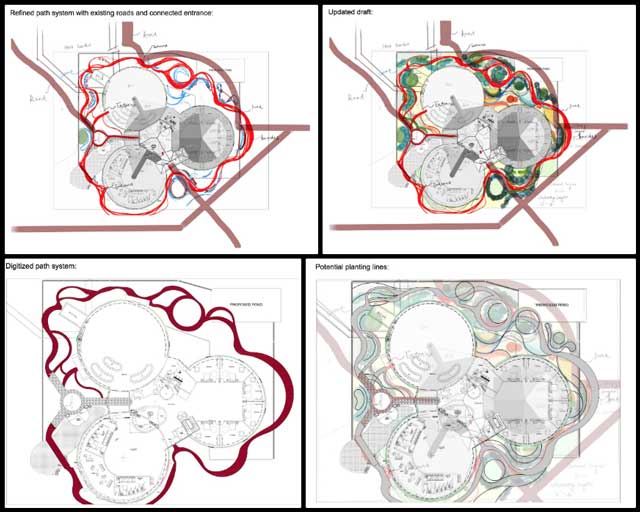
Continued to Modify the Planting Design and Researched Greenhouse for the Natural Greywater Processing System – Click for Duplicable City Center
And Ian Oliver Malinay (Energy Modeler/Analyst) completed his 4th week helping run the energy analysis calculations to help us achieve LEED Platinum status for the Duplicable City Center. This week Ian was able to finish the geometry modeling of interior and exterior along with the corresponding different types of windows and doors. He also arranged the thermal zoning of spaces with regards to ASHRAE 90.1-2010 standard. Progress photos are below reflecting efforts towards the mission of functioning as stewards of our own future.
HIGHEST GOOD FOOD PROGRESS
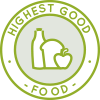 One Community is functioning as stewards of our own future through Highest Good food that is more diverse, more nutritious, locally grown and sustainable, and part of our open source botanical garden model to support and share bio-diversity:
One Community is functioning as stewards of our own future through Highest Good food that is more diverse, more nutritious, locally grown and sustainable, and part of our open source botanical garden model to support and share bio-diversity:
-
-
- Learn about the structures: Hoop House Hub | Aquapini & Walipini Open Source Hub
- See what we’ll be growing: Gardens & Hoop Houses | Large-scale Structures | Food Forest | TA
-
This week the core team continued rewriting/finalizing the chicken coop doc step-by-step instructions. This week we continued the updates to the step-by-step phase of the wall construction and sheathing process. The walls will be constructed on the floor framing, sheathed, and raised. To attain a level surface due to the disparity of the height of the hardware cloth on one half of the floor and the plywood on the other half, we are compensating the unevenness with temporary loosely-laid 1/2″ plywood.
All standing walls will be altered to correlate with the construction process as necessary. Simultaneously the text and drawings will corroborate the physical alterations of the drawings. Pictures below show some of this work-in-progress reflecting efforts towards the mission of functioning as stewards of our own future.
Jiayu Liang (Landscape Designer) completed her 14th week helping with the Aquapini & Walipini internal and external landscaping details. This week Jiayu separated the 6 parts of structures into 6 different Rhino files. This procedure took a lot of time. Although the files have been separated, the structural files are still way too large. She also worked on a diversity of renderings, a process that is ongoing. The following images show some of this latest development reflecting efforts towards the mission of functioning as stewards of our own future.
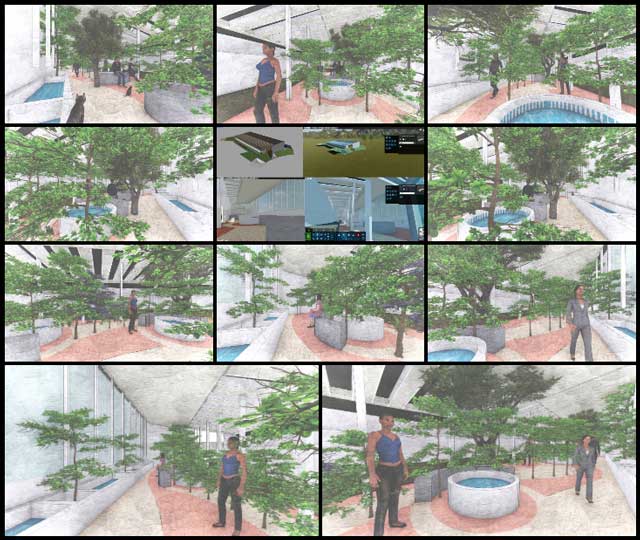
Separated the 6 Parts of Structures Into 6 Different Rhino Files – Click for Aquapini & Walipini Page
Henry Vennard (Mechanical Engineer) completed his 13th week helping continue the development of the climate batteries for the Aquapini/Walipini structures. This week Henry continued working on his Matlab code for finding the inlet air temperature of the greenhouse. He also worked on finding the most efficient temperature that the greenhouse should be designed around and researched into supplemental heating for winter climate battery systems. You can see some pictures related to this work below reflecting efforts towards the mission of functioning as stewards of our own future.
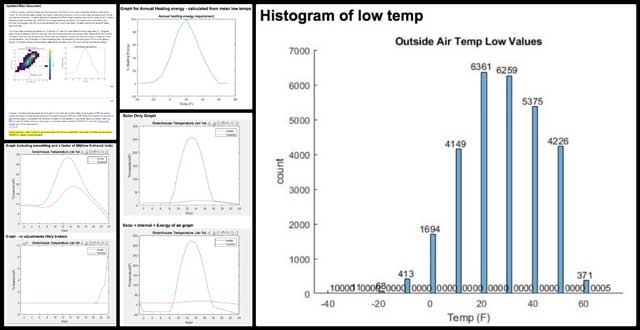
Continued the Development of the Climate Batteries for the Aquapini/walipini Structures – Click for Page
Diana Gomez (Mechanical Engineer) also completed her 12th and final week helping with the development of the climate batteries for the Aquapini/Walipini structures. This week Diana worked on the SimScale flow simulations and created guides for all the work she has produced up to this point. She was able to get the SimScale flow simulations to work but needed to read on the SimScale post-processing to analyze results. Understanding that this is Diana’s last week, she focused the majority of her time on creating guides of her work so that future team members can use these tools. The “Guide for the Climate Battery Spreadsheets” describes how to use the spreadsheets to calculate the total friction loss of the system.
The “Guide for the Matlab code – Burial Depth” demonstrates how to adapt the code to find the temper at different depths for different types of soil. This will be used to conduct the cost analysis of different soils types and determine which soil should be used to cover the climate battery. The “Guide for Flow/Heat Simulations” states the boundary conditions that should be used when conducting a flow/heat simulation as well as the issues that may be encountered. The pictures below show some of this work reflecting efforts towards the mission of functioning as stewards of our own future.
HIGHEST GOOD EDUCATION PROGRESS
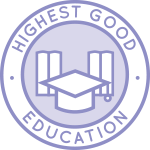 One Community is functioning as stewards of our own future through Highest Good education that is for all ages, applicable in any environment, adaptable to individual needs, far exceeds traditional education standards, and more fun for both the teachers and the students. This component of One Community is about 95% complete with only the Open Source School Licensing and Ultimate Classroom construction and assembly details remaining to be finished. We’ll report on the final two elements to be finished as we develop them.
One Community is functioning as stewards of our own future through Highest Good education that is for all ages, applicable in any environment, adaptable to individual needs, far exceeds traditional education standards, and more fun for both the teachers and the students. This component of One Community is about 95% complete with only the Open Source School Licensing and Ultimate Classroom construction and assembly details remaining to be finished. We’ll report on the final two elements to be finished as we develop them.
With over 8 years of work invested in the process, the sections below are all complete until we move onto the property and continue the development and open sourcing process with teachers and students – a development process that is built directly into the structure of the education program and everything else we’re creating too such as the mission of functioning as stewards of our own future:
- Program Overview: Education Open Source Hub
- How the components work together: How to use the Education for Life Program
- Lesson Plans for Life – Lesson Plans How-to
- Foundations of Outstanding Leaders, Teachers, and Communicators
- Curriculum for Life
- Teaching Strategies for Life
- Learning Tools and Toys for Life
- Evaluation and Evolution
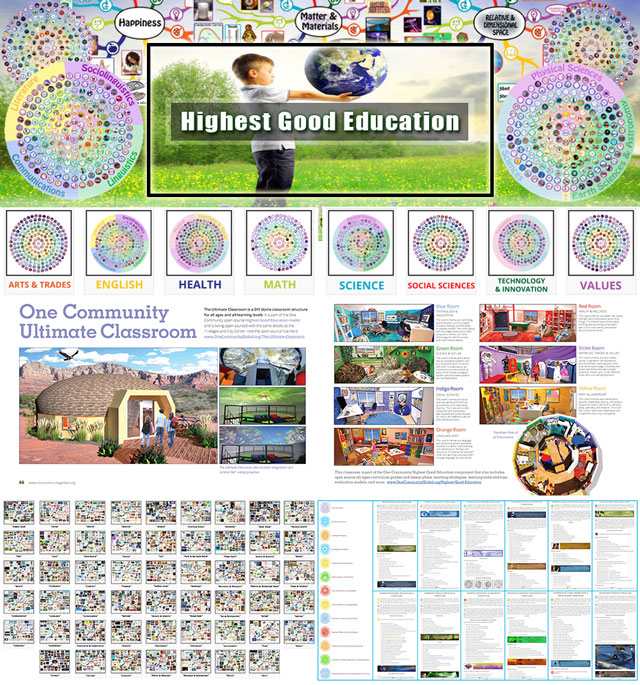
Highest Good Education: All Subjects | All Learning Levels | Any Age – Click image for the open source hub
HIGHEST GOOD SOCIETY PROGRESS
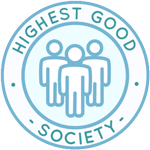 One Community is functioning as stewards of our own future through a Highest Good society approach to living that is founded on fulfilled living, the study of meeting human needs, Community, and making a difference in the world:
One Community is functioning as stewards of our own future through a Highest Good society approach to living that is founded on fulfilled living, the study of meeting human needs, Community, and making a difference in the world:
-
-
- Read the Highest Good society overview: Highest Good Society
- Learn about the model for fulfilled living and sharing: A Day in the Life
- Learn about the 4 economic models: RBE | For-profit | Non-profit | Entrepreneurship
- Learn about our open source community collaboration and management software: The Highest Good Network
-
This week the core team completed 19 hours managing One Community emails, social media accounts, interviewing potential new volunteer team members, and managing volunteer-work review and collaboration not mentioned elsewhere here.
The core team finished review and final edits to both the large-scale consensus and Love and Compassion content, updated them on the live pages of our site, and shared them. You can see some pictures of this work below reflecting efforts towards the mission of functioning as stewards of our own future.
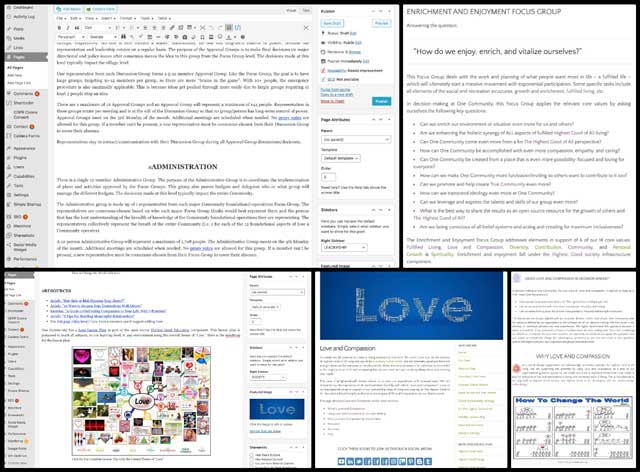
Finished Review and Final Edits to the Large-scale Consensus and Love and Compassion Content – Click for Love Page
The core team also completed our 3rd week working on improving the content for all our Values Pages. This week we continued work on the Consensus core value page. Readability has improved from ‘needs improvement’ to ‘OK.’ Subheading distribution improved, as well as improvements around passive voice, consecutive sentences, and sentence length. We also reviewed all the resources listed in the Consensus Resources Section. Pictures below show some of these behind-the-scenes updates reflecting efforts towards the mission of functioning as stewards of our own future.
Wen Zhang (Software Engineer) completed her 31st week as a volunteer working on the Highest Good Network software. This week Wen worked on the badge table for assigning badges. The badge management component was connected with the backend and database. Additional role authorization was also added so only “Administrators” have access to all the badge data and the assign/edit functionalities. Pictures of some of this work are below reflecting efforts towards the mission of functioning as stewards of our own future.
Yiqi Feng (Software Engineer) completed with her 22nd and final week as a member of the Highest Good Network software team. This week Yiqi finalized colors for her navigation bar component, wrote the proper documentation, and created a pull request for her final updates. You can see some pictures related to this work below reflecting efforts towards the mission of functioning as stewards of our own future.
Noor Qureshi (Insurance Researcher) completed her 20th week helping research One Community’s insurance options. This week Noor worked on organizing the different plans and coverages into a ranking system. She ranked each coverage by its cost with certain benefits. For example, plans with the highest deductible would have a higher ranking than plans with a lower deductible. However, plans that had higher copays for certain coverages had lower rankings. You can see some pictures related to this work below reflecting efforts towards the mission of functioning as stewards of our own future.
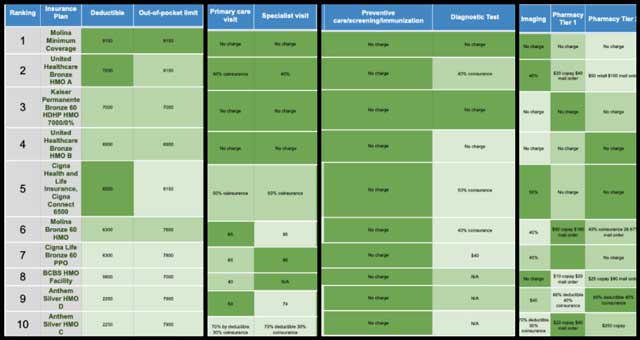
Worked on Organizing the Different Plans and Coverages Into a Ranking System – Click for Health Insurance Page
Chris Weilacker (Software Engineer) completed his 16th week working on the Highest Good Network software. This week, Chris worked on having the weekly summary popup be shorter and added a scrollbar. He also worked on some pull requests and added some code to clean up the pull request code from Yiqi. You can see some pictures related to this below reflecting efforts towards the mission of functioning as stewards of our own future.
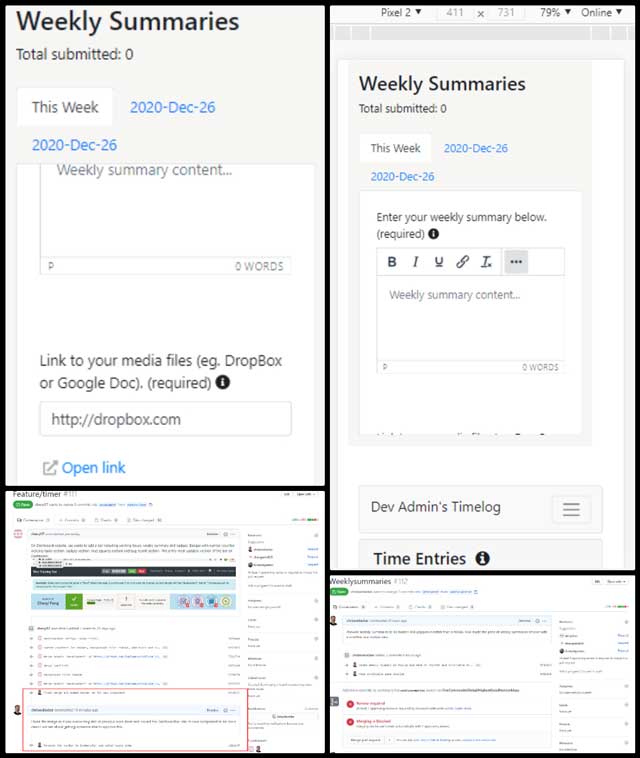
Worked on Having the Weekly Summary Popup Be Shorter and Added a Scrollbar – Click for Highest Good Network
Jaime Arango (Graphic Designer) also completed his 15th week helping with various graphic design work for the project, continuing this week working on the new badges for the badges section on the Dashboard of the Highest Good Network. This week Jaime kept working on the new designs for the badges to use in the badge section on the dashboard of the HGN. This week he made new corrections on the 40 hour streak and the 50 hour streak. He also finished the 60 hour streak badges and created a new image for the 90 hour badge. Pictures of the updated and new badges are below reflecting efforts towards the mission of functioning as stewards of our own future.
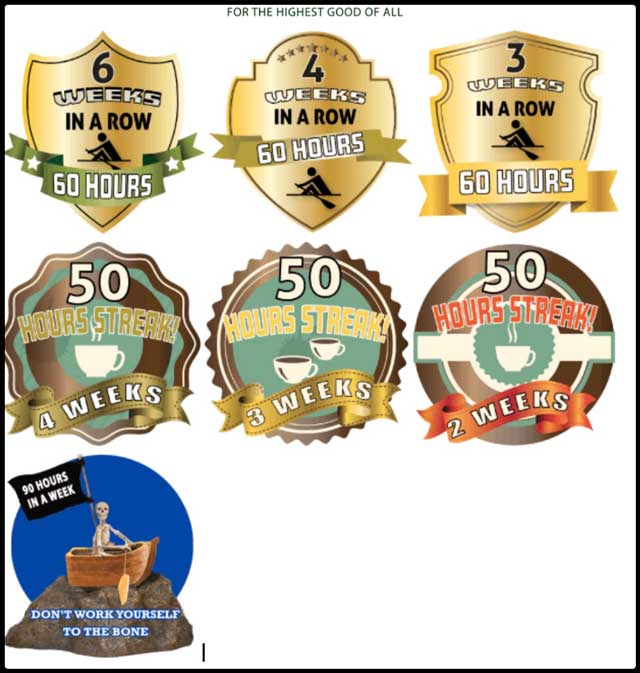
Continued Working on the New Badges for the Badges Section on the Dashboard of the Highest Good Network – Click for Page
Robert Pioch (Graphic Designer) completed his 4th week also helping with the new badges for the badges section on the Dashboard of the Highest Good Network. This week, Robert completed the first round of Highest Good Food badges and submitted them for final review and feedback. You can see pictures of the new designs developing below reflecting efforts towards the mission of functioning as stewards of our own future.
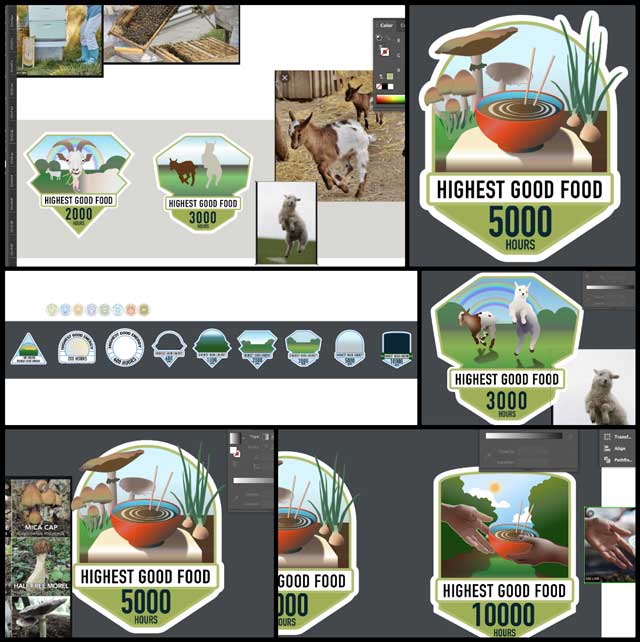
Completed First Round of Highest Good Food Badges and Submitted Them for Final Review – Click for Highest Good Network
AND WE PRODUCED THIS WEEKLY UPDATES BLOG – CLICK HERE TO SUBSCRIBE
FOLLOW ONE COMMUNITY’S PROGRESS (click icons for our pages)
INVESTOR PAGES
GET INVOLVED
DONATE ● WAYS ANYONE CAN HELP ● MEMBERSHIP
CLICK HERE FOR ALL PAST UPDATES
 One Community
One Community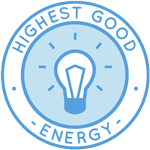
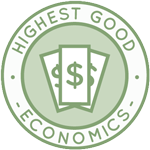
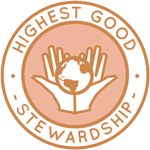
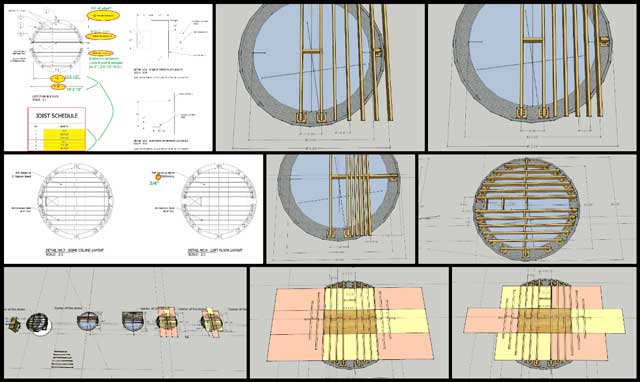
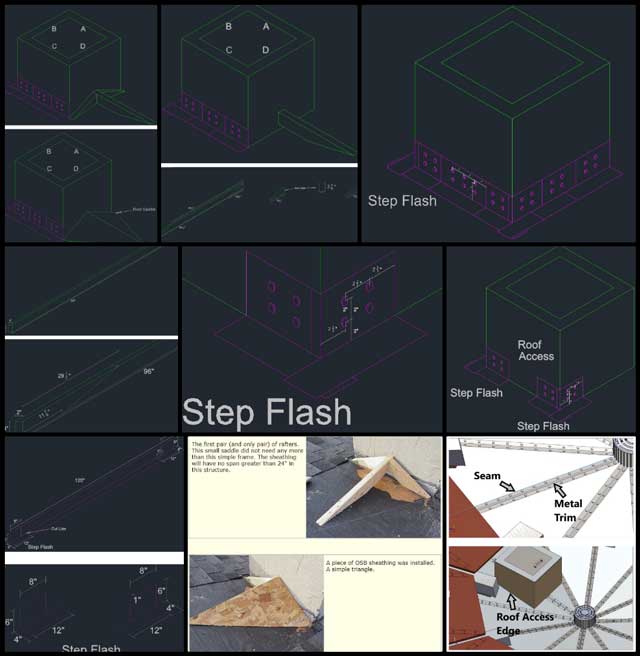
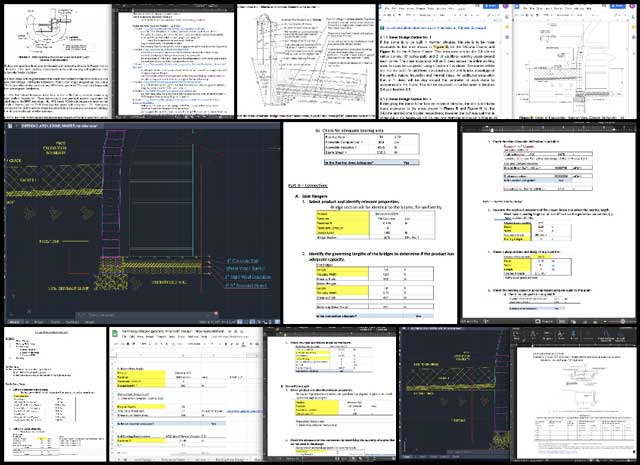
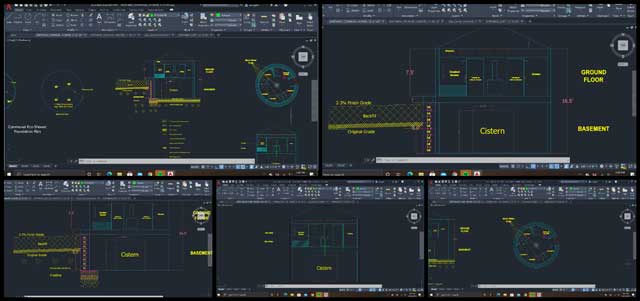
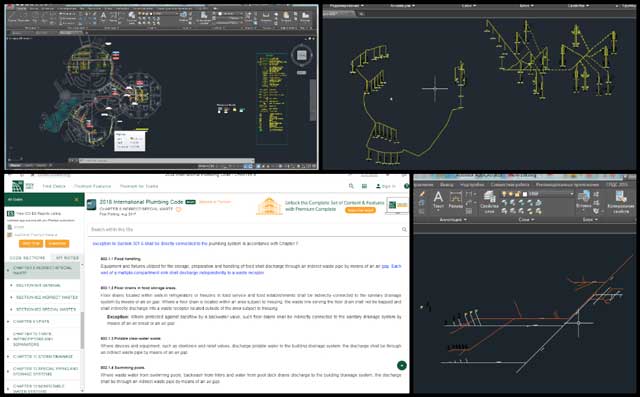
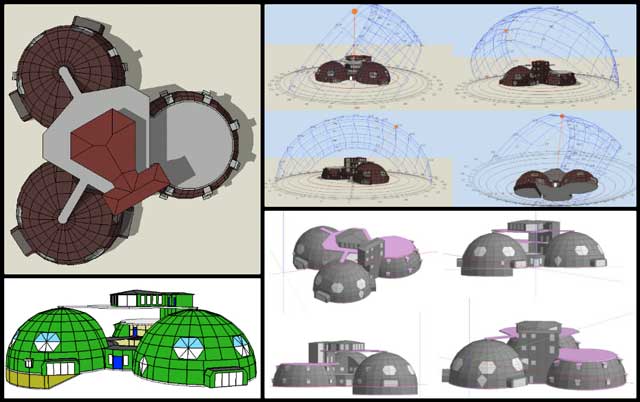
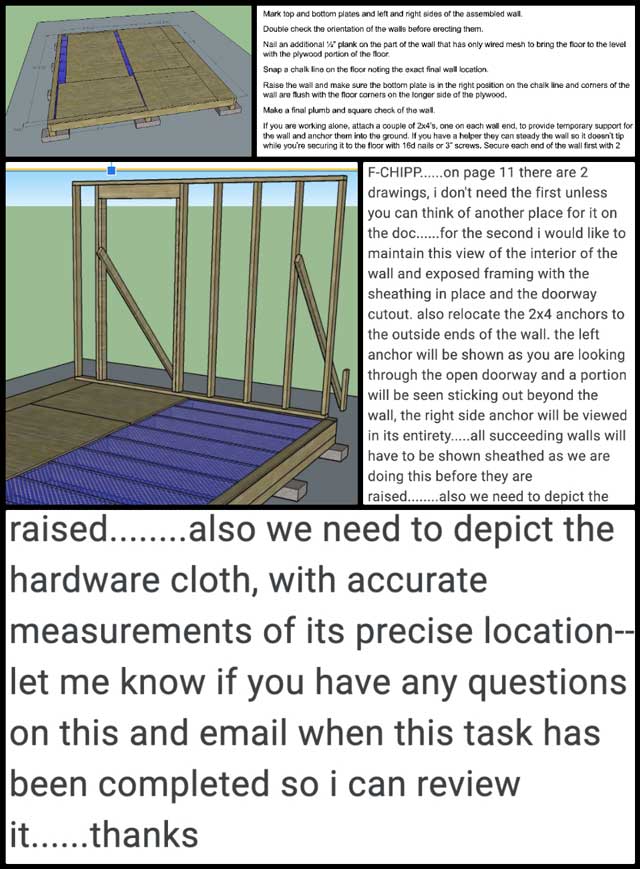
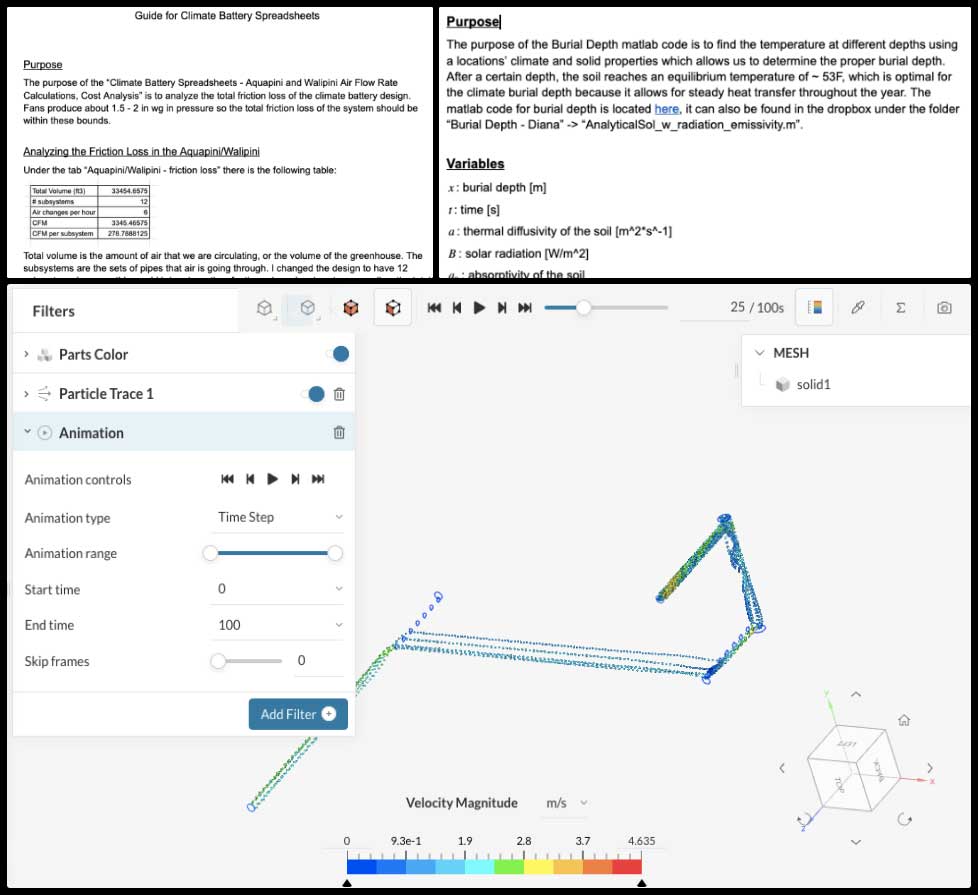
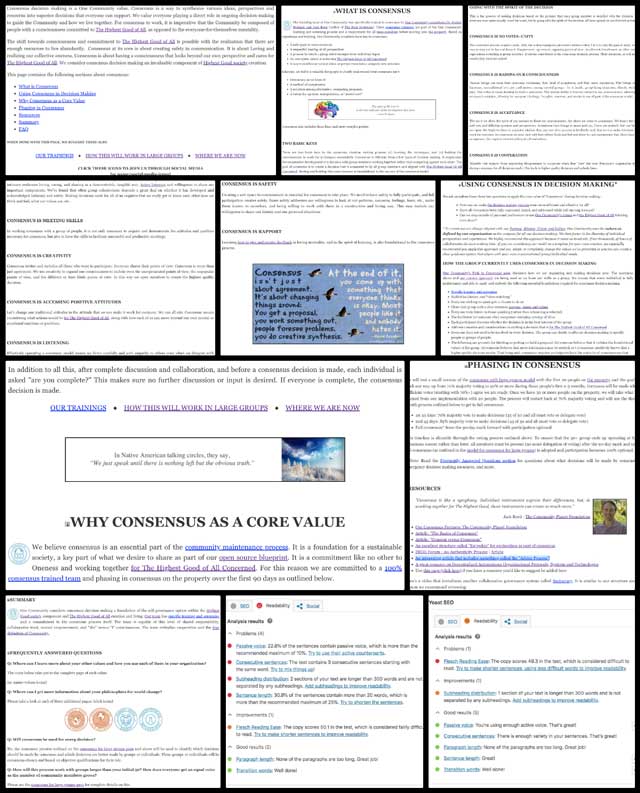
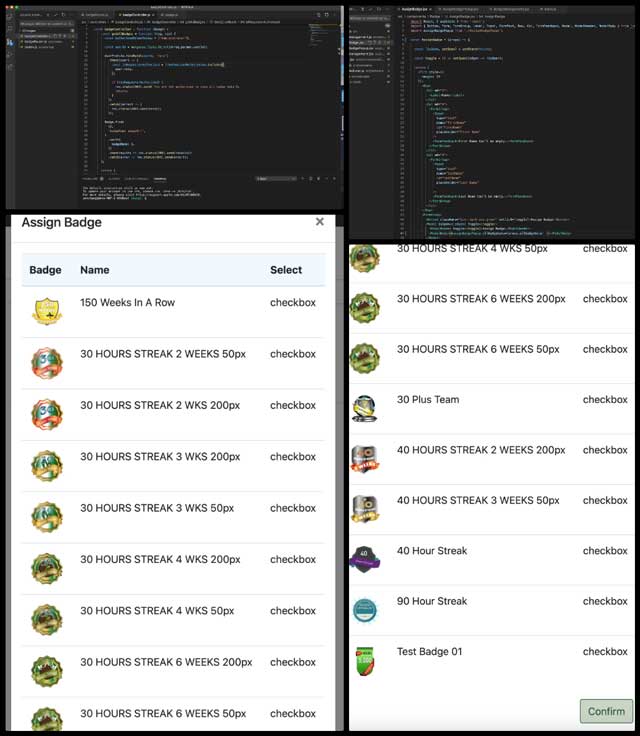
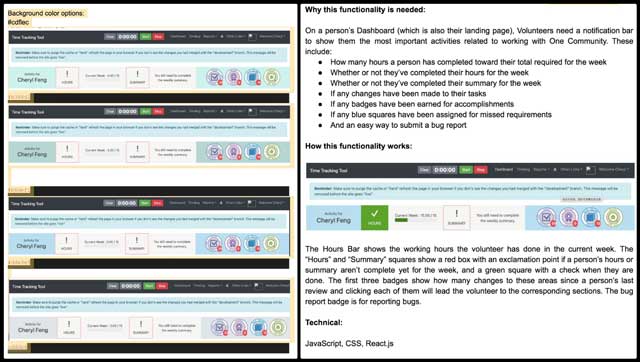



Connect with One Community